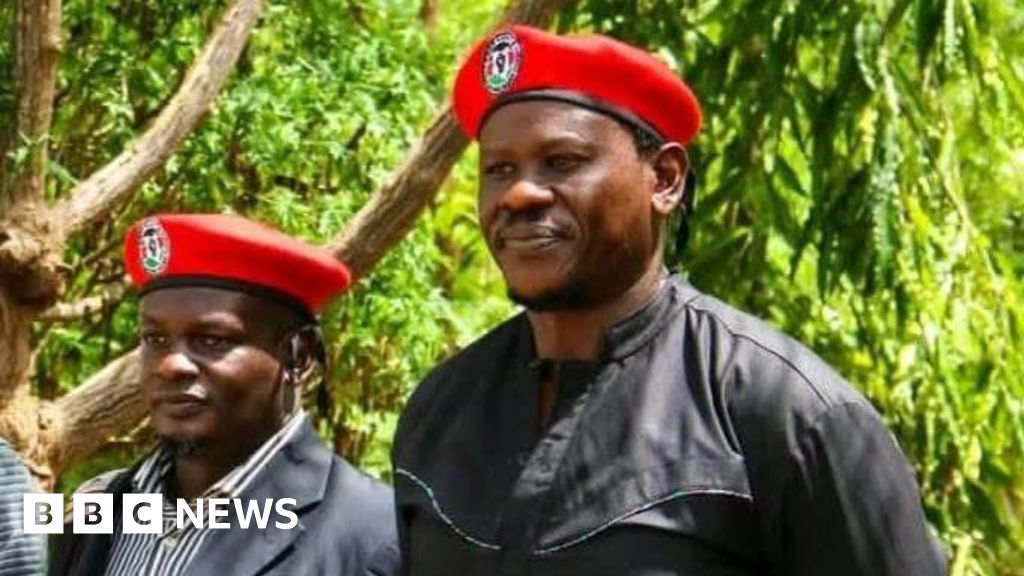Kenyan activists missing in Uganda found safe after five weeks

```html Kenyan Activists Supporting Bobi Wine Found Safe in Uganda After Weeks-Long Disappearance
Two Kenyan human rights activists who went missing in Uganda five weeks ago have been found alive, sparking relief and renewed concerns about cross-border repression of dissent in East Africa. Bob Njagi and Nicholas Oyoo, who were supporting Ugandan opposition leader Bobi Wine, were reportedly seen being forced into a vehicle by uniformed men after a political event. Their disappearance triggered widespread condemnation from human rights organizations, who accused Ugandan authorities of involvement.
Activist organisation Vocal Africa confirmed on Saturday that the men were safe and being transported from Busia, Uganda, to Nairobi, Kenya. "Let this moment signal an important shift towards upholding the human rights of East Africans anywhere in the East African Community," the organisation stated on its Instagram page.
Ugandan Authorities Deny Involvement
Despite eyewitness accounts and pressure from Kenyan rights groups, Ugandan police denied holding the activists. Vocal Africa, the Law Society of Kenya, and Amnesty International issued a joint statement thanking both the Kenyan and Ugandan governments, activists, journalists, diplomats, and "all active citizens who have tirelessly campaigned for this moment."
Bobi Wine, whose real name is Robert Kyagulanyi, is preparing to challenge President Yoweri Museveni in the upcoming presidential elections. Museveni, who has been in power since 1986, faces increasing opposition, particularly from younger voters drawn to Wine's message of change. Wine has accused the Ugandan government of targeting the two Kenyans for their association with him, a claim the government has not directly addressed.
A Pattern of Disappearances and Allegations of State-Sponsored Repression
The disappearance of Njagi and Oyoo is not an isolated incident. Ugandan security agencies have been repeatedly accused of detaining opposition politicians and supporters, often without due process. Some detainees have later resurfaced in court, facing criminal charges. These actions have fuelled fears of a "shadow army" operating to suppress dissent and maintain Museveni's grip on power.
Last year, Njagi himself was abducted in Kenya by masked men, resurfacing a month later after a court order demanded his production. He described harrowing conditions in captivity, including isolation and food deprivation. Earlier this year, Kenyan activist Boniface Mwangi and his Ugandan counterpart Agather Atuhaire were detained in Tanzania and held incommunicado before being abandoned at their respective borders. They alleged brutal mistreatment, including sexual torture, by Tanzanian authorities, allegations that were dismissed by Tanzanian police.
Historical Context: Uganda's History of Political Repression
Uganda's history is marked by periods of political instability and repression. While Museveni initially came to power promising democratic reforms, his government has increasingly been criticised for suppressing opposition voices and limiting freedoms of expression and assembly. The upcoming elections are expected to be fiercely contested, and concerns remain about the potential for further human rights abuses.
Expert Analysis: Cross-Border Collaboration and Erosion of Democratic Norms
Dr. Sarah Nakimuli, a political science lecturer at Makerere University in Kampala, argues that the incident highlights a worrying trend of cross-border collaboration in suppressing dissent within the East African Community. "The ease with which individuals can be abducted in one country and potentially transferred to another suggests a level of cooperation between security agencies that undermines regional human rights norms," she explains. "It also creates a chilling effect on activists and opposition figures who may fear operating across borders."
According to human rights lawyer, Alice Barungi, based in Nairobi, the incident points to a weakening of democratic institutions across the region. “The fact that these activists were targeted for simply associating with an opposition leader demonstrates a clear disregard for freedom of association and expression. It is crucial that both the Kenyan and Ugandan governments conduct thorough and impartial investigations into these disappearances and hold those responsible accountable,” she said.
The incident has sparked widespread condemnation from human rights organisations. Concerns remain about the potential for further human rights abuses in the lead-up to the Ugandan elections. Experts warn of a worrying trend of cross-border collaboration in suppressing dissent.
Looking Ahead: Calls for Accountability and Regional Cooperation
The safe return of Njagi and Oyoo is a welcome development, but it also underscores the urgent need for greater accountability and regional cooperation to protect human rights defenders in East Africa. Civil society organizations are calling on both the Kenyan and Ugandan governments to investigate the circumstances surrounding their disappearance and ensure that those responsible are brought to justice. The incident also highlights the importance of continued international scrutiny of human rights practices in the region. ```
Originally sourced from: BBC News Africa
